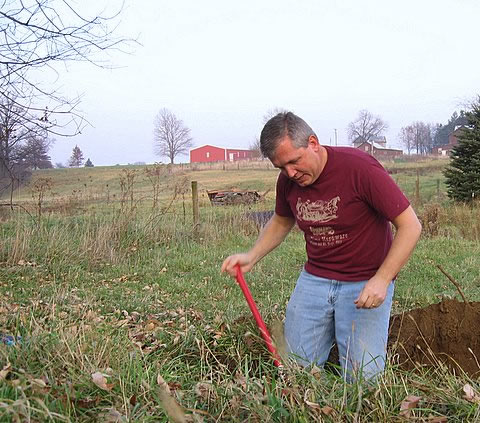This week, with all the ballyhoo about a “jobless recovery,†I’ve been soaking up news about the economy.
One of the things I’ve been hearing a lot about is rising oil prices. The fact that oil prices are rising in the face of weak demand and a surplus of supply looks like a mystery. Supply and demand is like gravity. You can’t fight it indefinitely. When supply is up and demand is down, economist tell us prices always, always must fall.
But oil prices aren’t falling.
Grandpa was an logger back in the day when everyone used horses and crosscut saws, and he often warned me, “You can’t see the forest for the trees.†It took me a long time to figure out what that saying meant. Finally, I realized that what he meant was if you spend too much time looking at the details, that is the trees, you won’t get the big picture. In other words, you’ll see a lot of trees but not realize you’re in a forest.
To figure out the mystery of climbing oil prices, you have to see the big picture. After noodling over the rising price of oil all week, I was finally able to step back from the trees and see the whole forest. Grandpa would have been proud.
One of the most important “trees in the forest†that we need to keep in sight is the fact that oil is a finite resource. Everybody knows that some day there won’t be any more, although there’s a lot of argument over when that day will be. The fact that the supply of oil is not unlimited means that the price is predisposed to increase.
Another “tree†is that each barrel of oil already has a defined, unchangeable value. I’m not talking about the cost of the oil now, I’m talking about what we get out of each barrel.

A third tree in the forest is that (according to the Department of Energy), 48% of our oil is imported.
The fourth and final tree in my little forest is that the dollar is falling rapidly. A weaker dollar makes it more expensive for the USA to import goods.

Now here’s my bright moment of clarity, the moment when I understood the whole forest:
Since oil is priced in US dollars and the dollar is weaker and most oil is imported, the dollar’s falling value means that oil must become more expensive.
Each barrel of oil is worth 19.5 gallons of gas, 9.2 gallons of heating oil and 4.1 gallons of jet fuel. Without some miraculous technological change, we can’t make it worth more than that.
Meanwhile each dollar buys less on foreign markets. If the dollar goes down, it seems like an inescapable fact that oil will become more expensive.
The problem with this is that everything we do is dependent on petroleum and petroleum byproducts. Look around you right now. Everything you see was delivered using oil, including your clothes and the computer you are reading this article on. Most likely, they both came from the other side of the world. The only reason you can afford them is because they were delivered for almost nothing using relatively cheap oil.
Everything you touch was likely produced with electricity, which is also dependent on petroleum fuels. Government statistics tell us that America’s most common way of producing electricity is by burning coal. But, coal is dependent on oil, because getting it out of the ground requires huge amounts of petroleum to run equipment, power conveyors, etc. Another 20% of America’s electricity is produced by burning natural gas, the price of which usually follows the cost of oil.
Even your food, unless you grew it yourself, is highly dependent on cheap petroleum prices. Fifty years ago, 40% of our population was engaged in farming. Today, only 2% is farming. How did we reduce the labor required? By moving from horse-drawn equipment to massive gasoline or diesel powered tractors. By trucking food long-distances from specialized factory farms. And, by using petroleum-based fertilizers.
Ask a farmer how much they spend on fuel each month. I did. It’s a stunning amount.
I was talking with my friend, Roger, a few weeks ago. He’s been working at Lehman’s for about two years. By our standards, that makes him a newcomer.
His face lit up as he told me how living “the Lehman’s lifestyle†had changed his life. He’s put in a bigger garden, started canning more and dehydrating food and wants to install a woodstove this fall.
He discovered the values that are part of what has been for us “Lehman-ites†a way of life. We’ve always believed in self-reliance. We’ve always believed in being prepared for the worst. Out here in the country, a good winter storm can knock out the electric power for weeks at a time. So, we believe in being ready for anything.
All the talk on the effect of the falling dollar and potentially high oil prices leads me to the same conclusion Roger had when we talked. He said, “It seems like there is unstableness all around us.†My question is, how ready are we for the changes that “unstableness” may bring?
![]()
Galen Lehman, President, Lehman’s

Click here to join
me on Facebook!
For an evenhanded analysis of what a weaker dollar might mean for our economy, see this USA Today article.
This Los Angeles Times article blames speculation and the weak dollar for high oil prices.
For an unusual and interesting perspective on what could be leading to a weaker dollar, see this Wall Street Journal article.

































In addition, many believe we are now at an undulating PEAK/DECLINE oil situation.
Now moderated by recession decreased demand. With economic recovery, demand will increase and so will price. See: http://www.mindfully.org/Energy/Running-Out-Of-Oil.htm
http://www.peakoil.net/
Welcome to ASPO International
ASPO is a network of scientists and others, having an interest in determining the date and impact of the peak and decline of the world’s production of oil and gas, due to resource constraints. Read more.
On this page you will find news related to ASPO International, or any of its national organizations. For more news related to Peak Oil, see the News section on our links page. Larry in NH (My father from Archbold OH. I C O Wooster Grad)